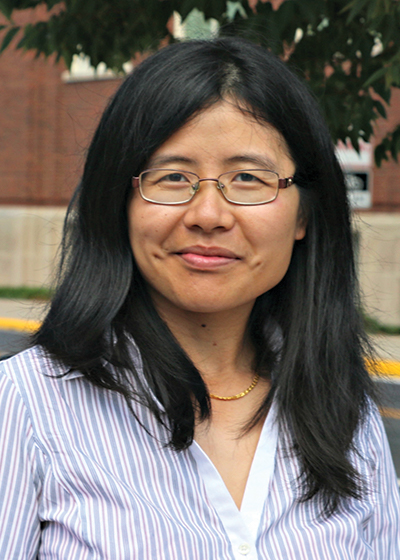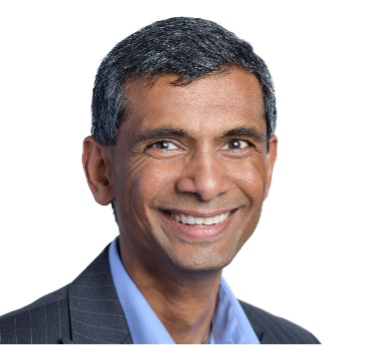MobiArch 2021
Workshop on Mobility in the Evolving Internet Architecture to be held in conjunction with MobiCom 2021
New Orleans, United States, April 1, 2022
Technical Program
All times listed in US Central Daylight Time (CDT)
Duration: 9:00 - 15:30
Room: North Ballroom
| 9:00 - 9:30 | Welcome |
| 9:30 - 10:30 | Keynote 1 |
| Session Chair: Sahar HOTEIT |
Revisit Mobility in the 5G Era: New and Old Challenges
|
Chunyi Peng |
Mobility support is a prominent utility service provided by cellular networks to mobile Internet. As the only large-scale wireless network with seamless wide-area mobility support, 5G/4G and its predecessor networks ensure always-connected experience for billions of mobile phones and tens of billions of things no matter where they are and where they go.
In this talk, I would like to talk about technical challenges and progresses for 5G and beyond mobility. With advanced wireless techniques (e.g., wider spectrum, massive MIMO, small cells) and increasing demands (e.g., extreme mobility, 3D coverage, ultra-high availability), 5G mobility faces with not only new problems in emerging scenarios but also old problems which are deteriorated with the mitigation from 4G to 5G. I will first present our recent efforts to reveal and characterize the negative impacts of legacy mechanisms and policies for mobility support, and then discuss potential solutions and ongoing efforts in the community. There is no end for mobile network evolution, which pushes us to even revisit the fundamental limit of next-generation mobility support. |
Chunyi Peng is an Associate Professor in the Department of Computer Science at Purdue University. Her research interests are on the broad areas of mobile networking, system and security, with a focus on enhancing performance, reliability and security of operational 5G/4G mobile networks and beyond. Her recent research seeks to renovate 5G networks and beyond through AI for networks and formal methods. She is a recipient of NSF CAREER award. She has received several best paper awards including ACM MobiCom Best Community Paper Award in 2016 and in 2017. She is an associate editor of IEEE/ACM Transactions on Networking (TON), IEEE Transactions on Mobile Computing (TMC), IEEE Transactions on Information Forensics and Security (TIFS) and Computer Networks. She has been active in the program committees of networking conferences like MobiCom, MobiSys, NSDI, and INFOCOM. She served as Technical Program Co-Chair for ACM MobiCom 2021. She holds a Ph.D. in Computer Science from University of California, Los Angeles. |
|
| 10:30 - 12:30 | Session 1 |
| Session chair: Sahar HOTEIT and Simone FERLIN |
- Network Intelligence in 6G: challenges and opportunities (invited paper)
by Albert Banchs, Marco Fiore, Andres Garcia-Saavedra and Marco Gramaglia
- Learning Based Congestion Control Simulator for Mobile Internet Education
by Junqin Huang, Linghe Kong, Jiejian Wu, Yutong Liu, Yuchen Li and Zhe Wang.
- Internet Islands: First Class Networked Communities in Isolated Regions
by Abdullahi Kutiriko Abubakar, Nishanth Sastry and Mohamed Kassem.
- Meeting 5G Application Requirements - It’s Not Just about Bandwidth
by Kwame-Lante Wright and Peter Steenkiste.
| 12:30- 14:00 | Lunch Break |
| 14:00 - 15:00 | Keynote 2 |
| Session chair: Stefano SECCI |
6G - Vision, use cases, drivers and enablers
|
Havish Koorapaty |
Each generation of mobile wireless systems has spearheaded a revolution in the way humans connect with each other and consume information. 2G made mobile wireless voice ubiquitous, 3G ushered in the era of mobile data consumption, 4G significantly enriched the forms of media and communications and 5G expanded the benefits of the mobile wireless system well beyond mobile broadband to massive machine type and ultra-reliable low latency critical applications. This talk will present an overall vision for a 6G system to be realized towards the end of this decade. The drivers, use cases and technological enablers for 6G will be discussed with the goal of mapping the journey to a richly connected, intelligent system that will further integrate computing and communications, both wireline and wireless, and become an indispensable foundation for society. |
Havish Koorapaty received his B.S., M.S., and Ph.D. degrees in Computer Engineering from North Carolina State University in 1991, 1993 and 1996 respectively. He has been with Ericsson Research since 1996, where he has worked in the general area of wireless communications systems including cellular and satellite systems. His work spans a wide range of topics including error control coding, location determination and tracking, mobile phone systems engineering, 4G and 5G broadband wireless system design, wireless backhaul solutions, energy efficiency, spectrum sharing and small cells. He has over 250 technical papers and patents in these areas and was the recipient of the Ericsson Inventor of the Year award in 2016. Havish has represented Ericsson in standardization efforts in the 3GPP, TIA, IEEE and ETSI standardization bodies. He has been involved in standardization efforts in 3GPP for 5G NR and LTE including serving as the rapporteur for the licensed-assisted access study and work items. He was the recipient of the 3GPP Excellence Award in 2015. Havish served as a vice-chairman in 3GPP RAN1 from November 2017 to November 2021. |
|
| 15:00- 15:30 | Concluding remarks |

